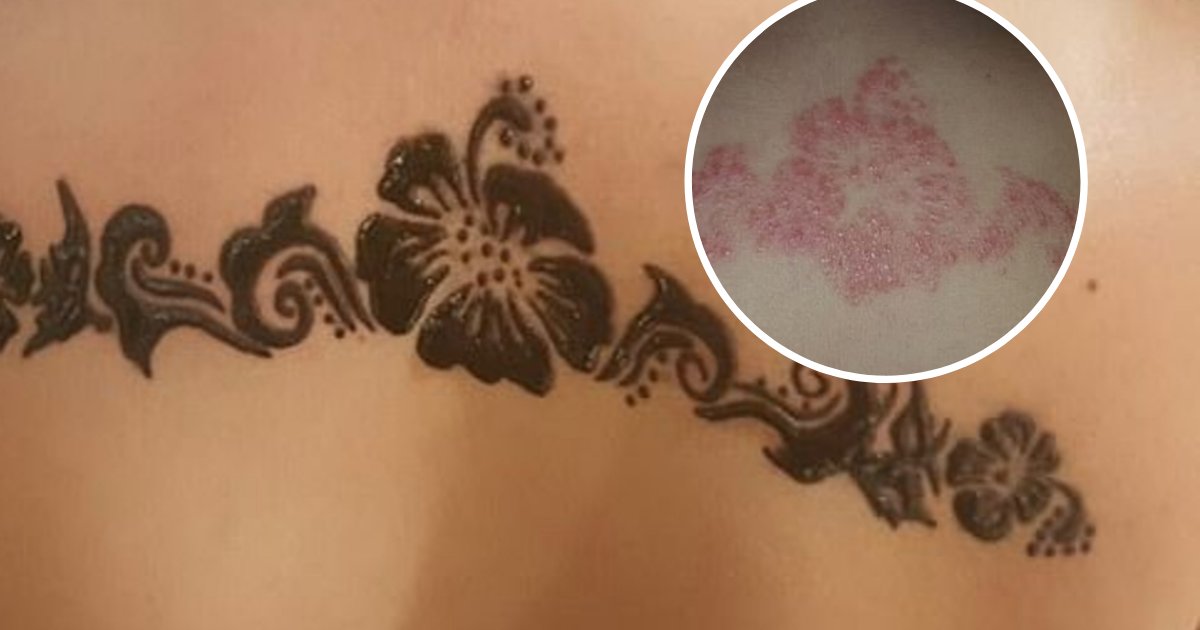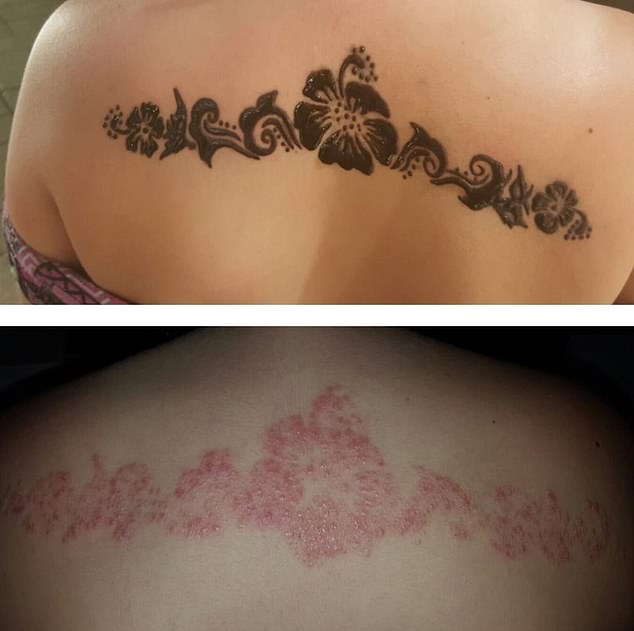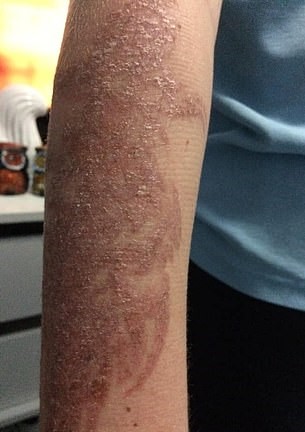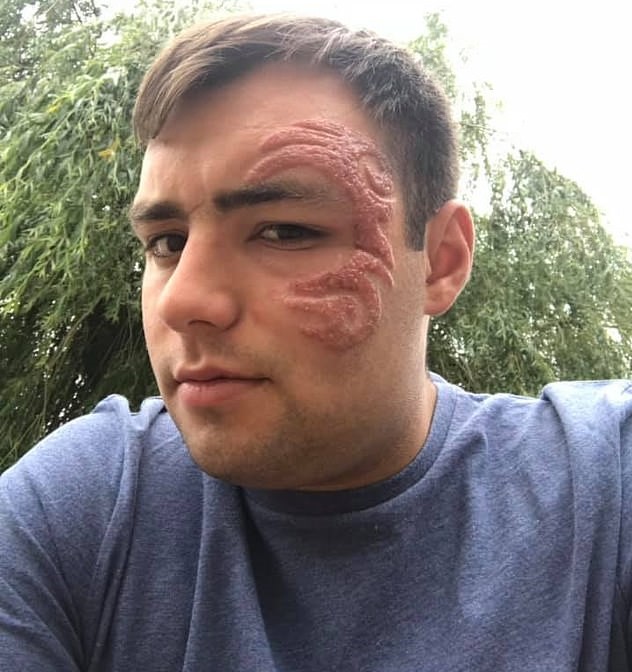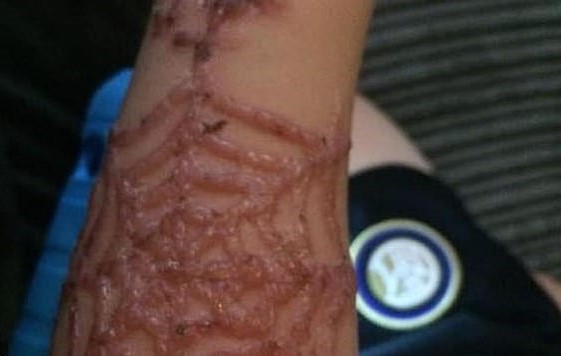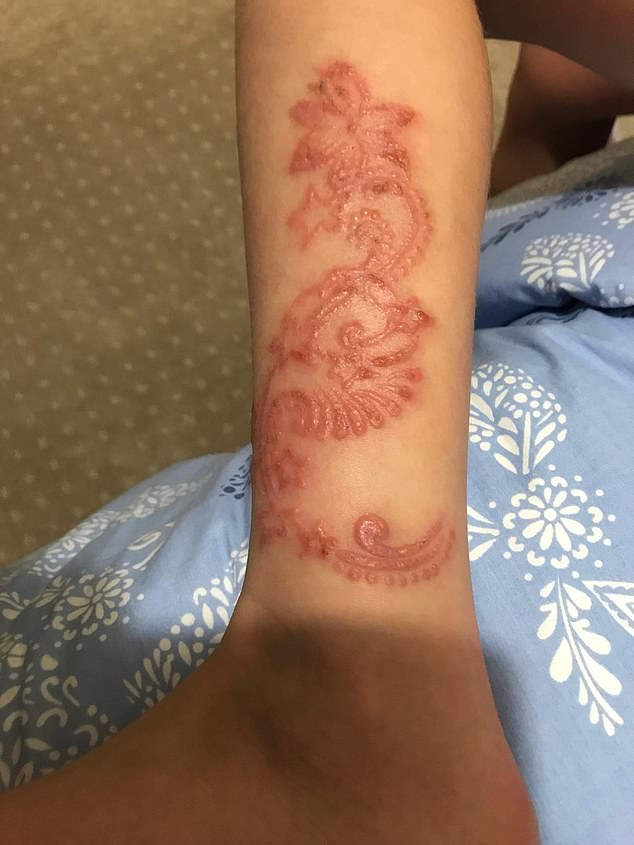Adventurous tourists have been warned about the dangers associated with getting henna tattoos done by self-proclaimed street artists after dozens of people reported getting blisters and scars following cheap procedures in Bali, Indonesia.
In an attempt to come up with a cool temporary look, many tourists don’t think twice before getting tattooed by street vendors who offer to get the job done for just $10 or less.
However, the low price comes with great risk. Many of the street tattoo artists use cheap dyes infused with paraphenylenediamine (PPD).
PPD is a chemical substance and an allergen known for causing blistering, open wounds, and long-term scarring due to allergic reactions.
According to Nine News, they analyzed the dye that five henna artists use on the Kuta Beach only to find out that four of them contained dangerous levels of PPD.
Allegedly, all four of the dyes contained over 12 % PPD, whereas the doctors warn that the concentration of just 1 % may have undesirable effects on the skin.
One of the recent victims was an 8-year-old girl who suffered severe burns to her leg after getting henna done by a local.
“There were no signs of reaction until four or five days later when it became itchy and a couple of spots appeared,” her mother, Erin Gutschlag, explained.
“It very quickly turned to the raised red, itchy, sore and then blistery sore. It is drying out and scabbing now so we have to keep applying creams and hope it doesn’t scar.
“She can now be allergic to hair dye or even some sunscreen in the future because of this exposure.”
Speaking of the matter, House Call Doctors’ Dr. Ryan Harvey explained that many of his patients suffered serious burns after getting their hennas done in Bali.
“Unlike here in Australia, there may not be any regulation of what goes into the dye, and children in particular can have extreme reactions that can cause blistering, open sores and a chemical burn,” he said in an interview with Daily Mail Australia.
“While many parents think getting a temporary henna tattoo is harmless holiday fun, it can lead to permanent scarring.”
As the doctor reminded, natural henna tattoos don’t contain PPD and should contain nothing but plant-based ingredients.
“The clear difference is real henna is never black, but rather an orange color with a red or brown tint to it,” Dr. Harvey added.
“Any very dark temporary tattoo should be treated with caution. Black henna tattoos are readily available in many countries, therefore it is important to be extra vigilant as many tattoo places will not inform tourists that black henna is being used.”
What are your thoughts on this story? Let us know in the comments and don’t forget to SHARE this post with your family and friends and follow us on Facebook for more news and stories!
Replaced!


